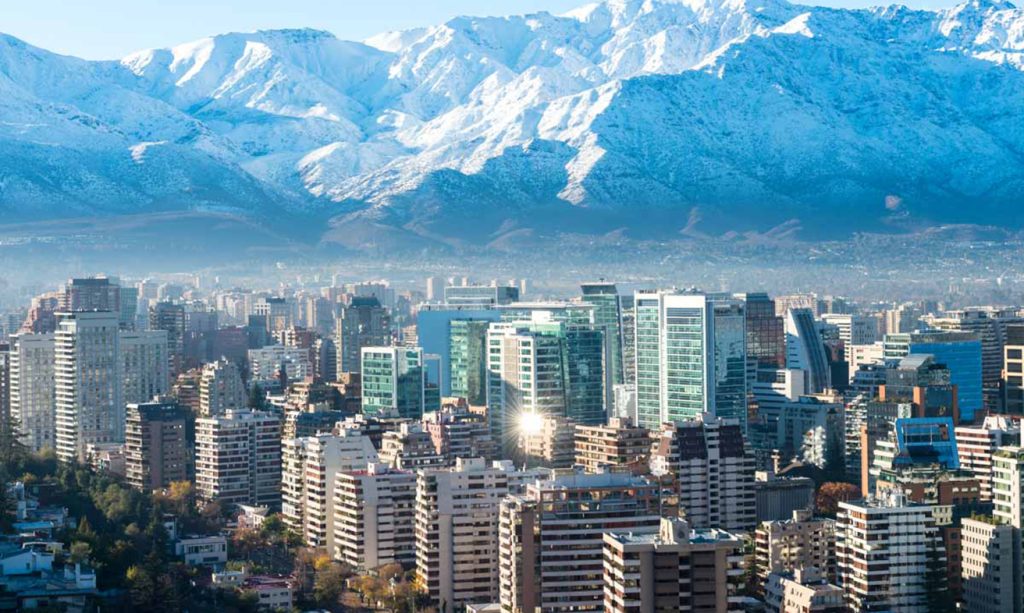Traveling is a magnificent adventure, a canvas painted with diverse landscapes, cultures, and experiences. Yet, amidst the thrill of exploration, one vital aspect stands tall above all: safety. As I embarked on my journey to Birmingham, England, I carried not only excitement in my heart but also a deep-seated awareness of the need for utmost caution and preparedness.
Safety during travel isn’t merely about physical well-being; it encompasses a spectrum of precautions and anticipations. It’s about safeguarding oneself against unforeseen circumstances, ensuring that every step taken in an unknown land is cushioned with layers of protection. This is where the beacon of travel insurance shines, a safety net that can make all the difference between a hiccup and a catastrophe.
In this diary entry, I delve into the realms of travel insurance, its significance amplified against the backdrop of Birmingham’s enchanting charm. Through my experiences and insights, I aim to unravel the layers of security that this invaluable asset provides, shedding light on its diverse facets and the peace of mind it bestows upon travelers.
So join me as I navigate through the corridors of safety, understanding the nuances of travel insurance and uncovering the means to ensure a secure and blissful sojourn through this vibrant city.
Definition and Purpose of Travel Insurance
Travel insurance stands as a shield against the unpredictability that often accompanies journeys. It’s a financial safety net designed to mitigate risks associated with travel. Its core purpose is to offer coverage for unexpected events that could potentially disrupt or harm a trip. This encompasses a wide array of scenarios, ranging from medical emergencies to trip cancellations and unforeseen mishaps with baggage.
Cruciality of Travel Insurance for a Secure Trip
The significance of travel insurance cannot be overstated. It acts as a safety harness, providing a sense of security that allows travelers to venture into unfamiliar territories with confidence. For instance, medical emergencies abroad can be exorbitantly expensive, and having adequate insurance alleviates the financial burden while ensuring prompt and quality care. Moreover, trip cancellations or interruptions due to various reasons, including unexpected illness, family emergencies, or natural disasters, can result in substantial financial losses. Travel insurance steps in to cushion these blows, offering reimbursement or coverage for the incurred expenses.
Types of Travel Insurance
- Medical Coverage: This is perhaps the most crucial aspect. It encompasses medical emergencies, hospital stays, ambulance services, and even emergency evacuation back to your home country in severe cases.
- Trip Cancellation/Interruption: This type of insurance covers cancellations or interruptions due to unforeseen events like illness, death in the family, severe weather conditions, or political unrest.
- Baggage Loss/Delay: It offers coverage for lost, stolen, or delayed baggage, providing reimbursement for essential items while the luggage is located or replaced.
Real-life Scenarios where Travel Insurance Proved Beneficial

In my own experiences and those shared by fellow travelers, travel insurance has been a savior in numerous situations. One instance stands out vividly: a friend encountered a severe illness while abroad, necessitating immediate hospitalization and subsequent repatriation. The comprehensive medical coverage provided by their travel insurance not only ensured top-notch medical care but also covered the substantial expenses incurred, sparing them from an immense financial strain.
In another instance, flight cancellations due to adverse weather conditions resulted in a significant delay. However, the trip interruption coverage in the insurance policy alleviated the financial burden by reimbursing accommodation and additional travel expenses during the unexpected extension of the trip.
Covered Aspects of Travel Insurance
- Medical Coverage: Travel insurance typically covers a gamut of medical emergencies, including illnesses, injuries, hospitalization, emergency medical evacuation, and repatriation of remains in case of unfortunate events leading to death. It’s imperative to review the policy to understand the specific medical conditions covered and any exclusions.
- Trip Cancellation/Interruption: Various unforeseen events might lead to trip cancellations or interruptions. Common reasons covered include sudden illness or injury, death in the family, severe weather conditions, natural disasters, airline strikes, or even jury duty. The reimbursement process involves filing a claim, providing necessary documentation, such as medical reports, death certificates, or proof of cancellations, and then awaiting approval from the insurance provider.
- Baggage Loss/Delay: Travel insurance often offers coverage for baggage loss, theft, or delays. Compensation is provided to cover the essential items required during the delay or reimbursement for the lost or stolen belongings. The process involves reporting the incident to the local authorities or relevant airline staff and then filing a claim with the insurance company, providing proof of ownership and value of the lost items.
- Other Aspects: Beyond the core coverages, travel insurance might also encompass personal liability coverage, offering protection in case of accidental damage to property or injury to others caused by the insured traveler. Rental car coverage is another aspect, providing insurance for rental vehicles against damages or theft during the trip.
How to Obtain Travel Insurance
- Research and Comparison: Start by researching various insurance providers and their policies. Understand the nuances of coverage, exclusions, deductibles, and claim processes. Comparison websites or platforms dedicated to travel insurance can assist in evaluating multiple options side by side.
- Understanding Policy Terms: Read the policy documents thoroughly to comprehend the terms, conditions, and coverage limits. Pay close attention to specific details such as coverage for pre-existing medical conditions, adventure activities, and any country-specific limitations.
- Ways to Purchase: Travel insurance can be obtained through various channels. Travel agencies often offer insurance as part of their packages, online platforms specialize in providing insurance tailored to individual needs, and some credit cards offer travel insurance as a perk if the trip is booked using the card. Assess the best-suited option based on coverage, cost, and convenience.
- Documentation and Application: To apply for travel insurance, you typically need personal information, trip details, and payment. Documentation requirements may vary but commonly include passport details, travel itinerary, and sometimes health information. The application process can usually be completed online, with instant policy issuance in many cases.
Navigating the realm of travel insurance demands meticulous attention to details, thorough research, and understanding the specific needs of the journey. However, the security and peace of mind it provides in unforeseen circumstances make this preparation an indispensable part of travel planning.
My Experience: A Tale of Travel Insurance and Safety Measures

In my adventures across the globe, I’ve encountered moments that highlighted the paramount importance of travel insurance and safety precautions. Once, while exploring the breathtaking landscapes of New Zealand, a hiking expedition turned daunting when a fellow traveler faced a severe injury. The prompt medical evacuation arranged through our travel insurance not only ensured timely treatment but also emphasized the critical role of being adequately prepared for unforeseen emergencies.
Lessons Learned: Insights from Past Experiences
From these moments arose invaluable lessons. Firstly, comprehensive travel insurance is not an option but a necessity. It’s the safety net that can transform a potential crisis into a manageable situation. Secondly, understanding the fine print of the insurance policy is pivotal. Knowing the coverage details, exclusions, and claim procedures beforehand is crucial to making informed decisions.
Moreover, practicing safety measures while traveling is as vital as having insurance. Simple actions like carrying essential medications, staying aware of local laws and customs, and keeping emergency contacts handy can significantly contribute to a smoother journey.
Recommendations: Tips for Fellow Travelers
- Choose Wisely: Selecting the right travel insurance policy demands careful consideration. Opt for a plan that aligns with your travel needs—whether it’s comprehensive medical coverage for remote destinations or trip cancellation coverage for unforeseen events.
- Read, Understand, Inquire: Thoroughly read through the policy documents. Seek clarification on ambiguous clauses. Understand coverage limits, especially concerning pre-existing medical conditions or adventurous activities planned during the trip.
- Prioritize Medical Coverage: Medical emergencies can be financially draining. Prioritize substantial medical coverage to ensure adequate protection against unforeseen illnesses or accidents.
- Document Everything: Keep records of important documents—passport, insurance policy details, emergency contact numbers—in multiple secure locations. This ensures accessibility in emergencies.
- Plan for the Unexpected: Anticipate potential risks and plan accordingly. Consider factors like weather conditions, political stability, or any ongoing health issues. Adapt your insurance choices to mitigate these risks.
- Stay Informed: Stay updated on travel advisories, local laws, and health guidelines of your destination. Awareness is a potent tool for ensuring safety during travel.
- Practice Caution: While insurance offers financial protection, prevention is key. Maintain vigilance, especially in crowded areas or unfamiliar surroundings. Use lockers for valuables, be cautious with personal information, and prioritize your safety at all times.
In essence, my journey through various destinations has been a canvas painted with thrilling experiences, but it’s also been a testament to the significance of meticulous planning and preparedness. Travel insurance isn’t just a formality; it’s a lifeline that ensures a journey is embraced with confidence and security. Pairing it with vigilant safety measures creates a harmony that allows one to explore the world with both excitement and assurance.




